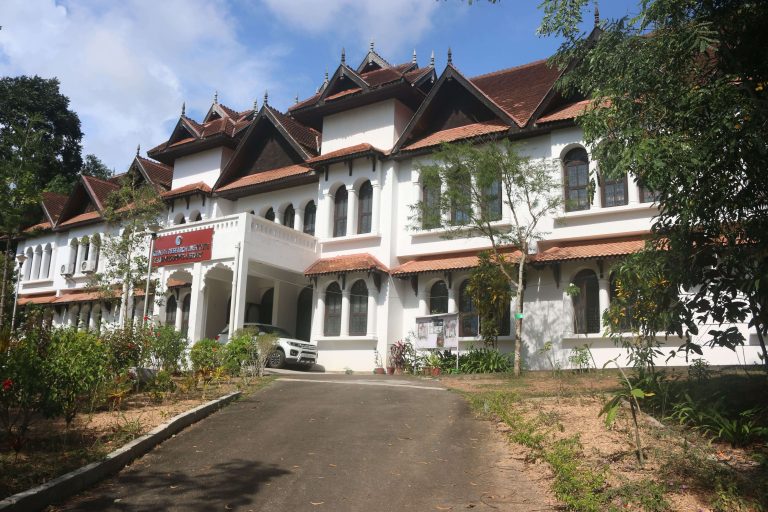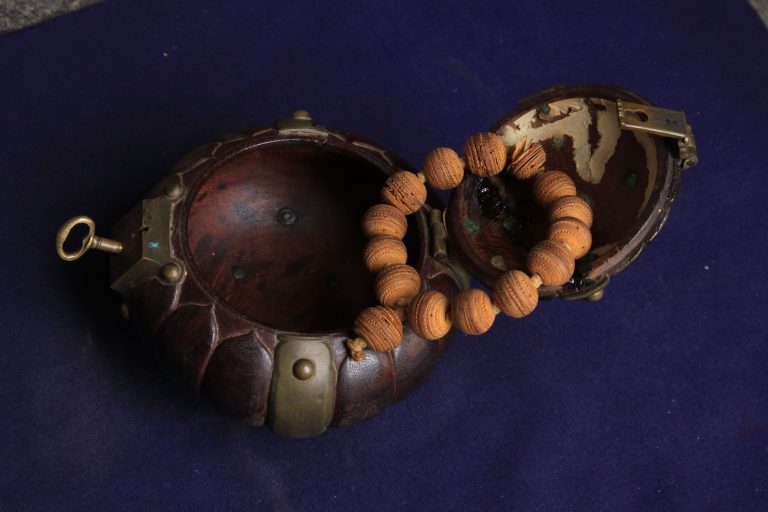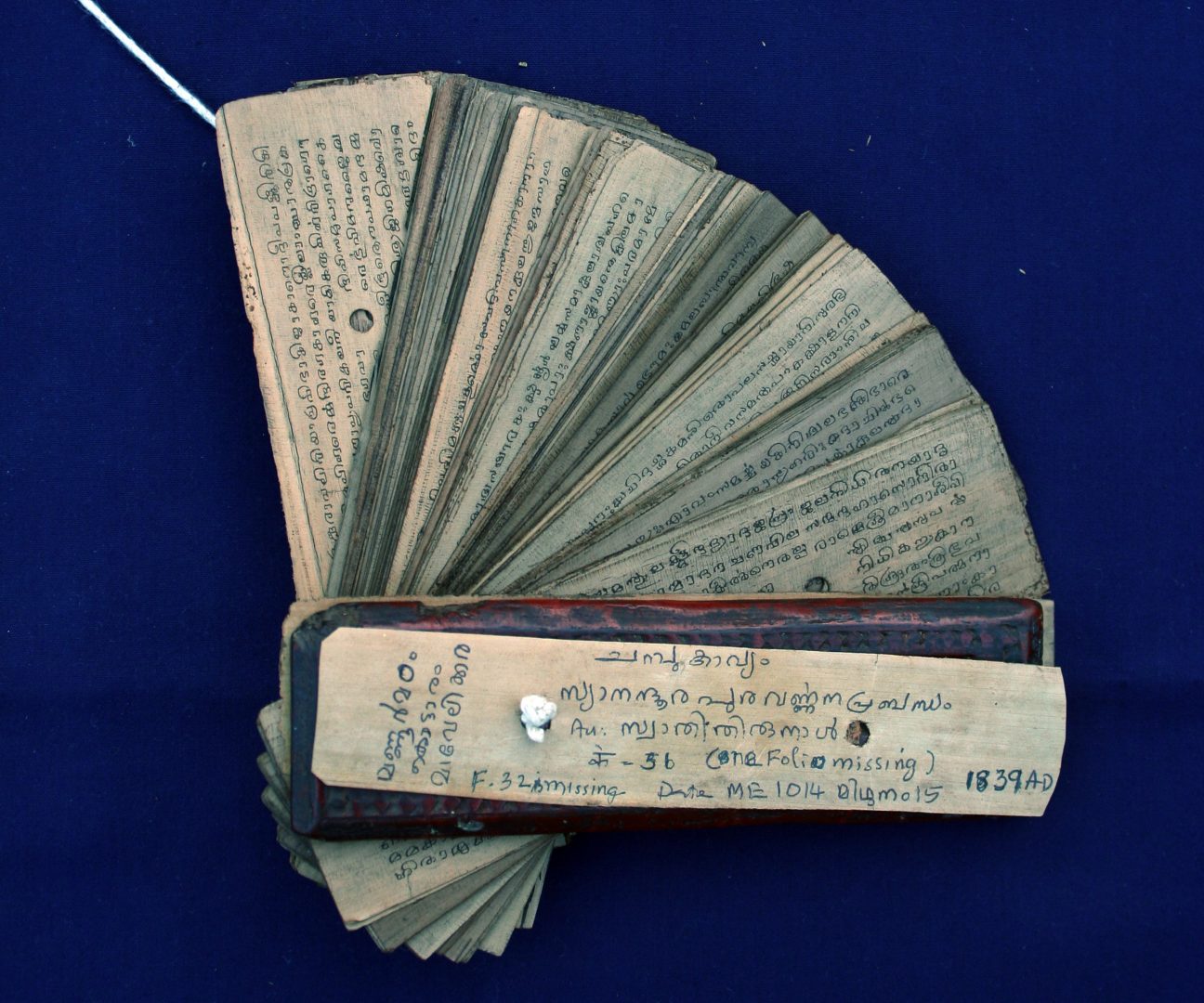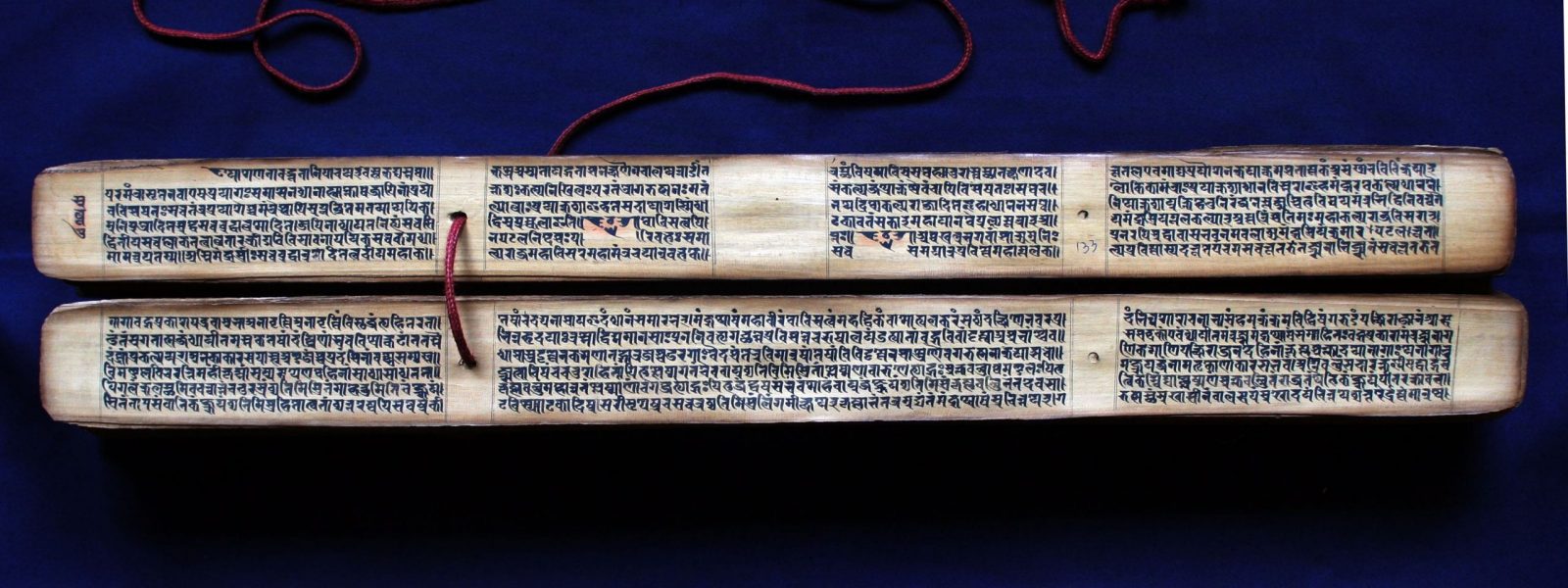About Us
About Oriental Research Institute and Manuscripts Library
Oriental Research Institute and Manuscripts Library is an academic department of the university of Kerala. It has a history of about a century, and now done substantial work in the field of Indological studies. It has come in to existence out of royal interest. The kings of Travancore, as a rule, were valorous as well as lovers of art and literature. Srimulam Tirunal was mainly responsible for the spread of Oriental literature through out the world. It was he who instituted the department for the publication of Oriental manuscripts which in due course grew into the present institution.
Situated at the beautiful scenario of Kariavattom Campus, the Department is symbolically the converging point of Eastern and Western architecture. The building became a reality, due to the timely efforts of former Central Minister, Dr.S.Karan Singh. His dreams came true in 1982, when the department was officially inaugurated at Kariavattom.


The Beginning
In 1903, His Highness Sri Moolam Thirunal appointed Dr. T. Ganapathy Sastri, then Principal of Sanskrit College, and a Scribe to publish the manuscripts under the royal collection. Next year the first of the Trivandrum series, “Daivam” with Purushakara commentary was published. Though “Bhaktimanjari”, the book of hymns composed by His Highness Swati Thirunal, eulogizing the tutelary deity, Lord Padmanabha, was printed first, the King wanted the book to be combined along with, “Syanandurapuravarnana prabandha”, a realistic portrayal of the capital city of Thiruvananthapuram.
In the year 1908, the department came into Independent existence with Dr.T.Ganapathi Sastri as the Head at Lakshmi Vilasam Bungalow, with an aim to publish not only the royal collections, but also with the view of bringing into light those in the private libraries of ancient families. This year, the department is proud in celebrating its centenary. Its noteworthy here that Mahamahopadhyaya Dr.T.Ganapathy Sastri, was awarded the degree of Doctor of Philosophy by Tubingen University, Germany for his edition of Bhasa plays for the first time.
“The University Manuscripts Library” was started under the Travancore University in 1938. Then the department was renamed as Oriental Research Institute & Manuscripts Library and was converted into a research centre for Indological Studies in 1966. The building was shifted into the present premises in the year 1982.
This Department owes much to the blue blooded royal line of Travancore rulers who had always taken attention to treasure the legacy of their ancient literary output, cultural heritage and had cared to pass on the scientific outlook to the successive generations too. Significance
This Institution is considered to be the first largest manuscripts Library of our country having about 65000 Manuscripts in different subjects like Jyotisa, Ganita, Silpa, Vedanta, Vyakarana, Mimamsa, Tantra, Natya, Itihasa, Purana etc. Majority of the works are in Sanskrit Language. The second position is for Malayalam and then comes Tamil. The rest include manuscripts from all other Indian languages and a few from Burmese and Indonesian.
The ORI & MSS. Library is better known for its rare and archaic collection with manuscripts in ancient scripts like granthas, Nandinagari, vattezhutt etc. This department has the unique status of unearthing the maximum number of works which are hitherto hidden in darkness, but at the same time are of paramount importance, and also for getting them published under T.S.S.

The Dramas of Bhasa, the famous treatise Aryabhatiya, Bhashakautaliayam, acknowledged by Dr.Radhakumud Mukharji as one of the most useful work for writing his book ‘Chandragupta Maurya and his Times’.Aryamanjusrimulakalpa, one of the source books utilised by Dr.K.P.Jayswal to write his ‘Imperial History of India’ are only a few examples for such valuable ancient works. Other publications include grammatical treatises like Bhartruhari’s Vakyapadiya, Narayanabhatta’s Prakriyasarvasva, Astangahrdaya the renowned Ayurvedic treatise, Arthasastra of Kautalya, Manusyalayacandrika, and important work on Indian Architecture and Tantrasamuccaya. it is in recognition of such valuable publication especially the plays of Bhasa, the then curator Sri. T Ganapatisastri was awarded honorary Doctorate degree from the Tubingen University . Also the then president of India and a scholar of international repute Dr.S.Radhakrishnan came in person to this University for unveiling the portrait of Ganapati Shastri on 30th Marh 1949.

The Functions of the Department
The major functions of the department are three fold viz
1) Collection and preservation of Manuscripts
From the manuscripts library of the Government, the manuscripts obtained were only 2500 and the remaining huge collection in this library are due to the drive and enthusiasm shown in this regard by the academic staff of this institution. Even now manuscripts are kept in the custody of some ancient families and this institution, used to get manuscripts as donations from different parts of Kerala.
During the period for the last seven years 463 manuscripts and 467 printed books were collected for the department.
The process of collecting manuscripts is an ongoing one which still extends, over the ‘Tharavadus’ and ‘Manas’ of ancient times. The department accepts donations wholeheartedly, from those who are reluctant to hand over their manuscripts, the department resorts to the method of photocopying and digitisation of manuscripts.
To treasure these age old documents we combine traditional as well as modern techniques of preservation. These manuscripts are systematically and scientifically arranged in open wooden racks with adequate exposure and free air circulation. Cleaning and oiling is done rotationally by the staff,trained and well equipped for the same. Modern preservation methods include fumigation and digitisation. Our team is always willing to render technical advice and help regarding preservation to private repositories and owners.
In addition to the indigenous techniques of oiling and dusting the modern techniques like fumigation, microfilming and digitization are adopted for the preservation of manuscripts. More than 10,000 Sanskrit manuscripts of this library were microfilmed by IGNCA. Also digitization manuscripts and of transferring to CD ROM is being done with the help of C-DIT.
2) Publication and Sales
Even before its formal establishment as a department, the publication of manuscripts commenced under the well known Trivandrum Sanskrit Series (T.S.S.) Till now 450 major works were published. In addition, 383 Sanskrit works were published through the departmental Sanskrit journal. A good number of Malayalam works were also brought to light through the Malayalam journal.
Our two periodicals published annually are one bilingual (English & Sanskrit) and other is in Malayalam. They are ‘Journal of Manuscript Studies’ and ‘Bhasha Trimasikam’ which has been renamed as ‘Pracheena Kairali’. So far we were able to publish 38 volumes of Journal of Manuscript Studies and 33 volumes of ‘Pracheena Kairali’. In addition to the publication of minor works, these journals publish articles on subjects related to the editing of manuscripts, ancient scripts, Indology etc. Catalogues of our collection has also been published. They include simple and descriptive catalogues. Subject wise and Alphabetical indices have also been published. All these are in three languages. We have a sales department through which we make available our publications to the general public.
3) Teaching and Research
Teaching is yet another endeavour undertaken by us. We offer Ph.D programmes (since 1978, under the headship of Dr. K. Raghavan Pillai), M.Phil programmes (since 1996, under the headship of Dr.K.Vijayan) and M.A. elective Manuscriptology classes (since 1997). We have produced 62 Ph.D’s so far and we are proud to entertain scholars and Indologists from different quarters of India and outside including the academic and literary circles.
We also provide M.phil Manusriptology course in Malayalam, Tamil and Sanskrit. There are eight seats for M.phil Manuscriptology. We have produced 103 M.Phil Degrees so far. We have recently started MA Elective classes which deal with various aspects of Manuscriptology. The speciality of the course is that it is interdisciplinary in nature. Other Oriental faculty departments Sanskrit, Malayalam, Hindi, Arabic, as well as Philosophy, Archaeology, Psychology and History join hands with us, in running these courses.
Four ancient scripts are taught under this unique programme which joins ancient culture with this present generation. And as a part of the curriculum we teach the scripts Brahmi, Nadinagari, Grantha and Vattezhuttu while classes on Research methodology are given.

